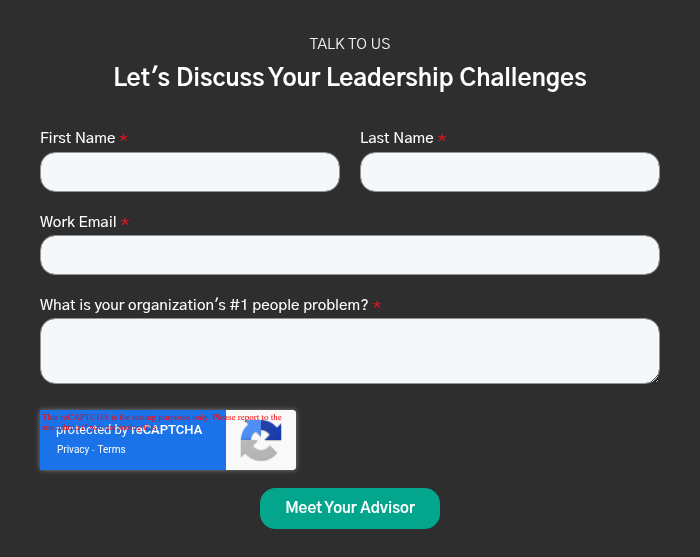
EQ development can help your confidence, self-expression, stress tolerance and more. Everyone could stand to benefit from EQ development, but some professionals — such as those who work remote or graduated recently — have a more urgent need than others.
If you’re asking yourself, “Should I do emotional intelligence development?” The short answer is yes, everyone could stand to develop their EQ.
The long answer is that emotional intelligence is one of the most sought-after skills in employees and leaders. Leaders who prioritize EQ development have effective, driven teams with excellent interpersonal skills.
But leaders who fail to prioritize EQ development can inadvertently create stressful, insecure work environments for their teams.
Although everyone could benefit from EQ training, specific subgroups of employees and leaders may need EQ training more than others. This article dives into those personas to help you decide if you should do emotional intelligence training for you or your team.
1. Remote work requires emotional intelligence training
Do you remember your first Zoom meeting?
Do you remember the early days of the pandemic, when many people had to discover new ways to communicate with their coworkers? How many times did you have to say, “You’re muted, can you repeat that?”
Today’s workforce has come a long way since then, but there are still face-to-face interactions we haven’t figured out how to replace for remote teams.
In a typical video conference meeting, you can’t see the body language of your coworkers – only their heads. However, Merhabian’s Rule says that 55% of our communication comes from body language.
Another 38% of our communication comes from tone and voice. So your coworker’s quippy text message could be interpreted as snarky when they were actually in a hurry or using shorthand.
One of our clients once told us a funny story about a coworker who closed an email with “I resent your email.” What he meant to say was, “I re-sent your email.”
If you lacked impulse control, you’d shoot back a snarky reply without considering the context.
And reality testing is an EQ skill that helps you see things objectively (instead of the way you fear them to be). So developing this skill would help you consider that email against the context of every other interaction you’ve had with this person. With reality testing, you’d think to yourself, “It doesn’t sound like him to say he resents my email with no other context, so I must be misinterpreting something.”
By developing skills like this through EQ training, remote workers can overcome these types of communication gaps, leading to a happier and more effective remote team environment.
2. Recent grads missed out on major EQ development
Today’s recent college graduates face a new challenge. Because much of their school was done online during the pandemic, they have less practice with interpersonal skills such as eye contact and handshaking.
Making the transition from school to the office environment is difficult enough. But for these recent graduates, simply being around others in person for eight hours each day can feel like a culture shock. EQ development can help them face these challenges head on.
Self-expression is another EQ skill with which they might struggle. If Zoom only shows their faces, do they know how to dress to impress? Do they know how to dress for an interview, for a regular day at the office, or for an out-of-town conference?
People who are reliant on video conferencing could also lack impulse control. During a Zoom meeting, no one can see what’s on your screen or that you’re actually scrolling through social media instead of focusing on the meeting discussion.
These recent grads are at a disadvantage compared to their seasoned coworkers, but EQ training can help them overcome these challenges by developing skills in interpersonal communication, self-expression, and more.
3. Seasoned leaders need EQ development to keep up with today’s workforce
Someone who has led teams for many years could also use a refresher course on EQ.
What worked in leadership 10-20 years ago may be perceived differently today.
“Overall, leadership has shifted from a top-down, authoritarian style to one that is more collaborative, empowering, and focused on growth and service,” said leadership coach Adam Kielczyk. “Leaders today recognize that the skills, experience, and motivation of employees are invaluable assets that can greatly benefit any organization.”
Today’s leaders need empathy, flexibility, optimism, and more. A leader who only gives negative feedback, who only views employees as a number, or who cannot manage their own stress will struggle to keep employees in today’s workplace environment.
Seasoned leaders who want successful, engaged employees must adapt their leadership style to the changing environment. EQ training can help leaders close the gap between what worked at the beginning of their careers and what works today.
A great indicator that you have an authoritarian leadership style is if you make far more statements than you ask questions. Are you guiding your employees through self-discovery, or are you commanding them to do things exactly the way you would do it? The empathy and interpersonal skills gained through EQ development will train leaders to avoid this authoritarian style.
4. First-generation leaders and entrepreneurs need to catch up with EQ developement
If you’ve grown up watching your parents succeed in entrepreneurship, it’s easier for you to believe that you can achieve similar success.
The odds of a first-generation entrepreneur making it are very slim. EQ training in problem-solving, optimism, and assertiveness is essential for those who are new to the unique challenges of entrepreneurship.
For some first-time professionals, they’ve been told previously that they didn’t belong in the entrepreneurial/leadership space. These professionals may need more confidence-building exercises.
One of our clients has a natural entrepreneurial spirit and can always find a solution, but you can often hear her second-guessing herself.
“Well maybe I shouldn’t try,” she says sometimes. “Maybe this is ridiculous.” She underestimates herself in ways that she wouldn’t if she were a second or third-generation entrepreneur.
Because EQ training ties together both decision-making and stress tolerance, it’s a highly effective tool for entrepreneurs, especially those in the first generation.
5. Individual contributors need EQ development after a promotion
You probably didn’t get your first leadership role because you were good at leadership.
What typically happens is a person is a superstar employee and exceeds expectations in their contributions. Seeing this success, management promotes them into leadership.
Only now, that employee isn’t using the skill upon which they built their stellar reputation. Instead, now they need leadership and people-management skills. And this may be a skill set they don’t have.
For example, maybe they struggle with holding others accountable. This was never an issue in their individual contributor role: the only person they needed to hold accountable was themselves. Now they need to develop their EQ and improve their assertiveness, their interpersonal skills, and more.
Individual contributors who are promoted into leadership roles should start their journey with an EQ-i assessment. This self-reported tool can help them see which EQ qualities are their strengths and weaknesses.
Then, after working with their new direct reports for a year, the leader can do the EQ 360 assessment, which takes feedback from friends, family, and direct reports.
By taking this strategic approach to EQ, the leader will have a much smoother transition from individual contributor to leadership.
The process improves their self-perception, how they handle stress, how they work through problems, and more, which are must-have qualities after a promotion into leadership.
Everyone can benefit from EQ development
At the end of the day, we’ve all encountered difficulties when it comes to developing Emotional Intelligence in the workplace. This is especially true if you’re in remote work, a recent grad, or a longtime leader who needs a quick brush up on your EQ skills when dealing with a new generation of the workforce.
Now that you’ve learned from The Metiss Group what to do if this happens, it’s time for you to contact us and take the next step toward life-changing leadership. Just fill out the form below to get started.

